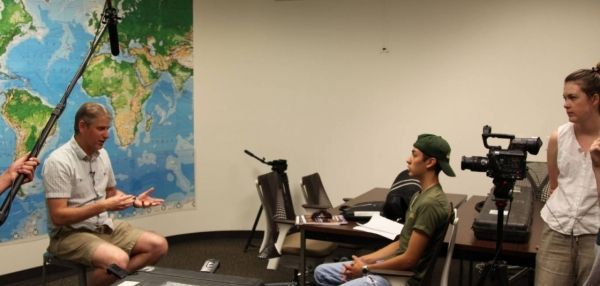A group of teens headed down to fish at a shady stream in the American Southwest. But in addition to rods and tackle, they also carried professional-grade video cameras, microphones, and recording equipment. Erik Morales, a student from Gadsden High School in Anthony, New Mexico, shared his story with the camera: “I used to go fishing all the time,” he said. “But things have changed over the past decade…there isn’t enough water to sustain, kind of, the amount of fish we used to catch.”
In June, 15 middle and high school students from across southern Colorado and New Mexico journeyed to the NOAA-supported Cooperative Institute for Research in Environmental Sciencesoffsite link (CIRES) at the University of Colorado Boulder. The students were there for a week-long program to explore the effects that environmental change has on their lives and in their communities.
The Lens on Climate Change (LOCC) program, funded by the National Science Foundation's Innovative Technology Experiences for Students and Teachers, allowed these students to take a deeper look at climate change topics and use their new knowledge to create short, educational movies. This group was from Upward Bound Math Science, a program that targets low-income students and those who may be the first in their families to attend college.
CIRES and Colorado Film School mentors worked with LOCC students throughout the week as they explored environmental issues through research and filmmaking. Students split themselves into teams based on common interests. Morales’ team formed from a group of outdoors enthusiasts; all four team members shared a love for outdoor recreation like hiking, camping, and fishing.
Continue reading at NOAA.
Image via NOAA.


